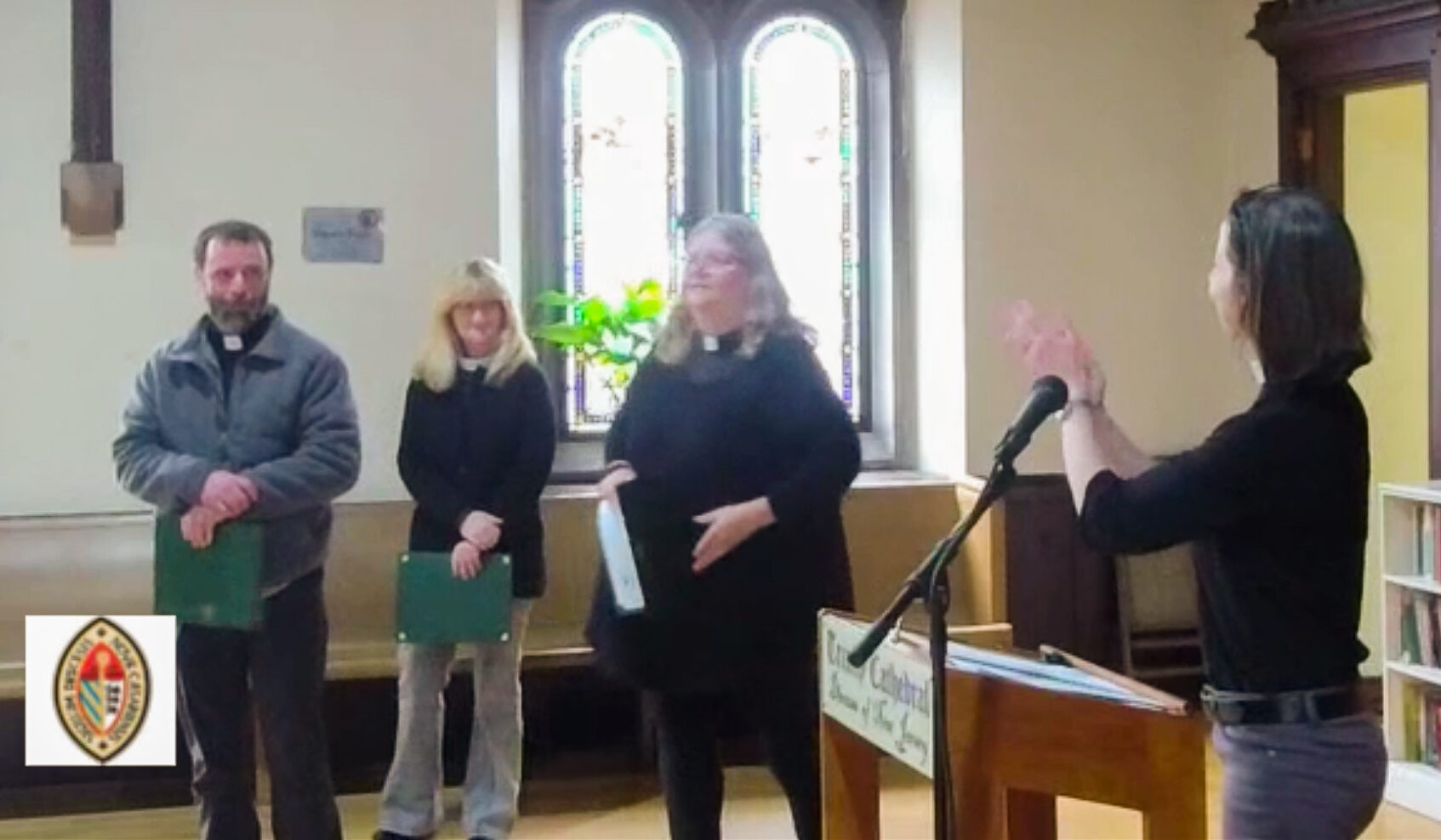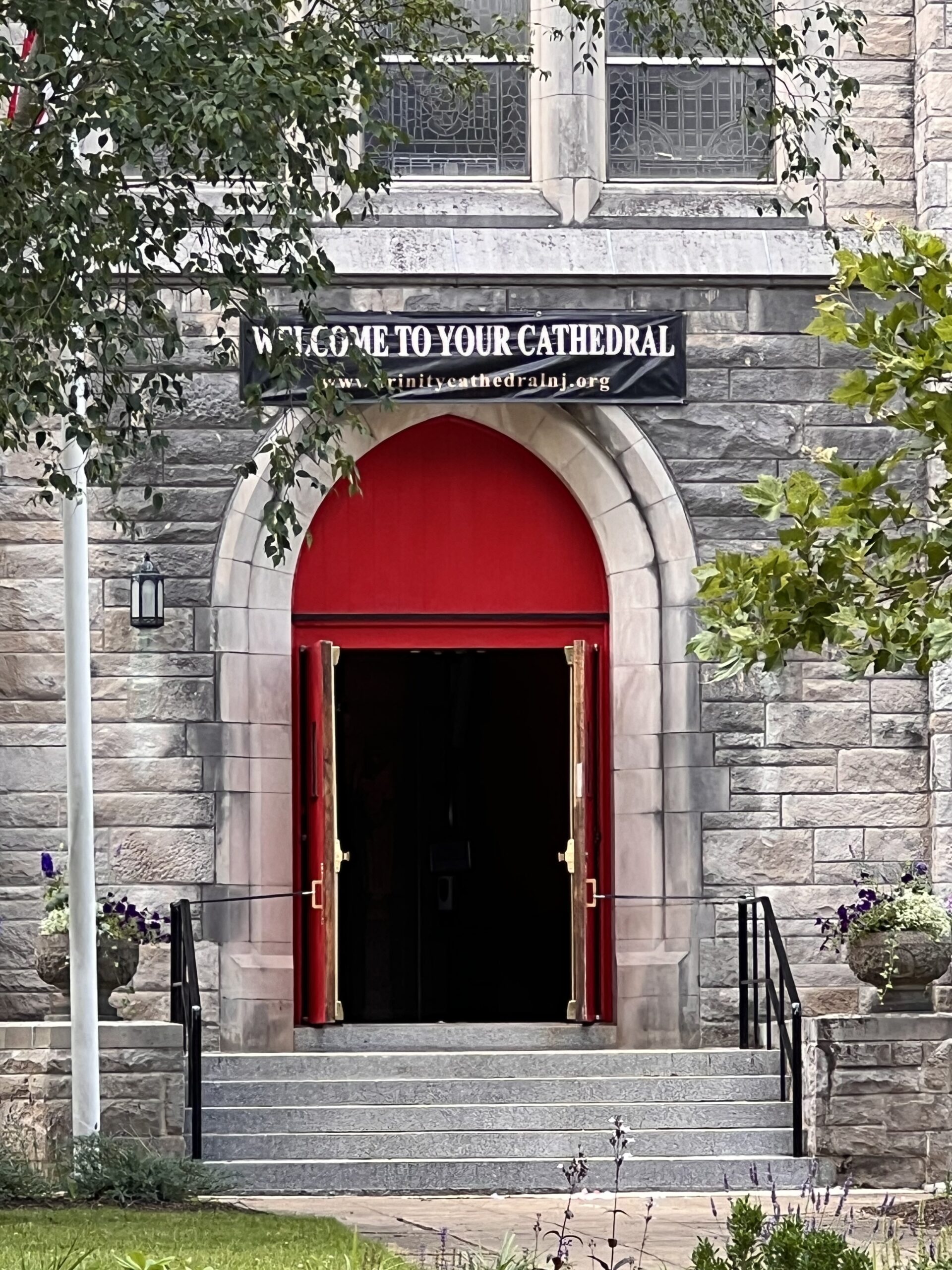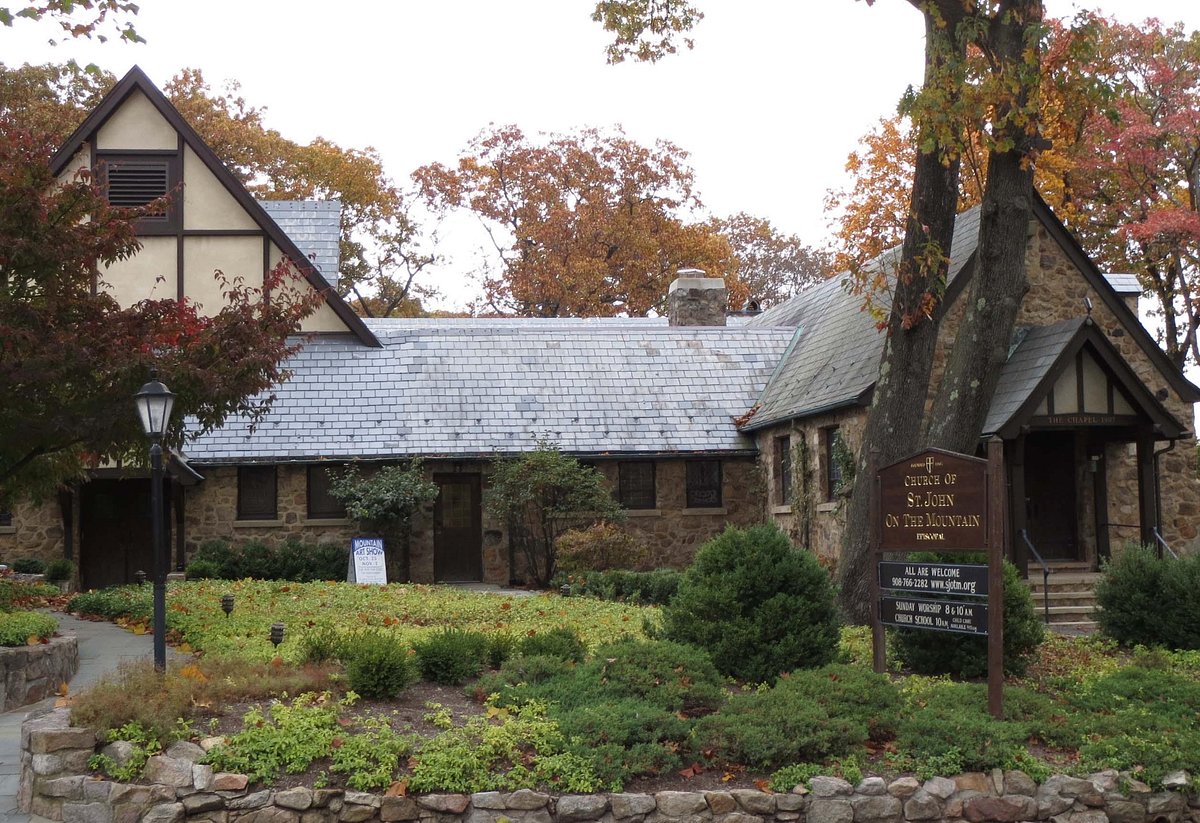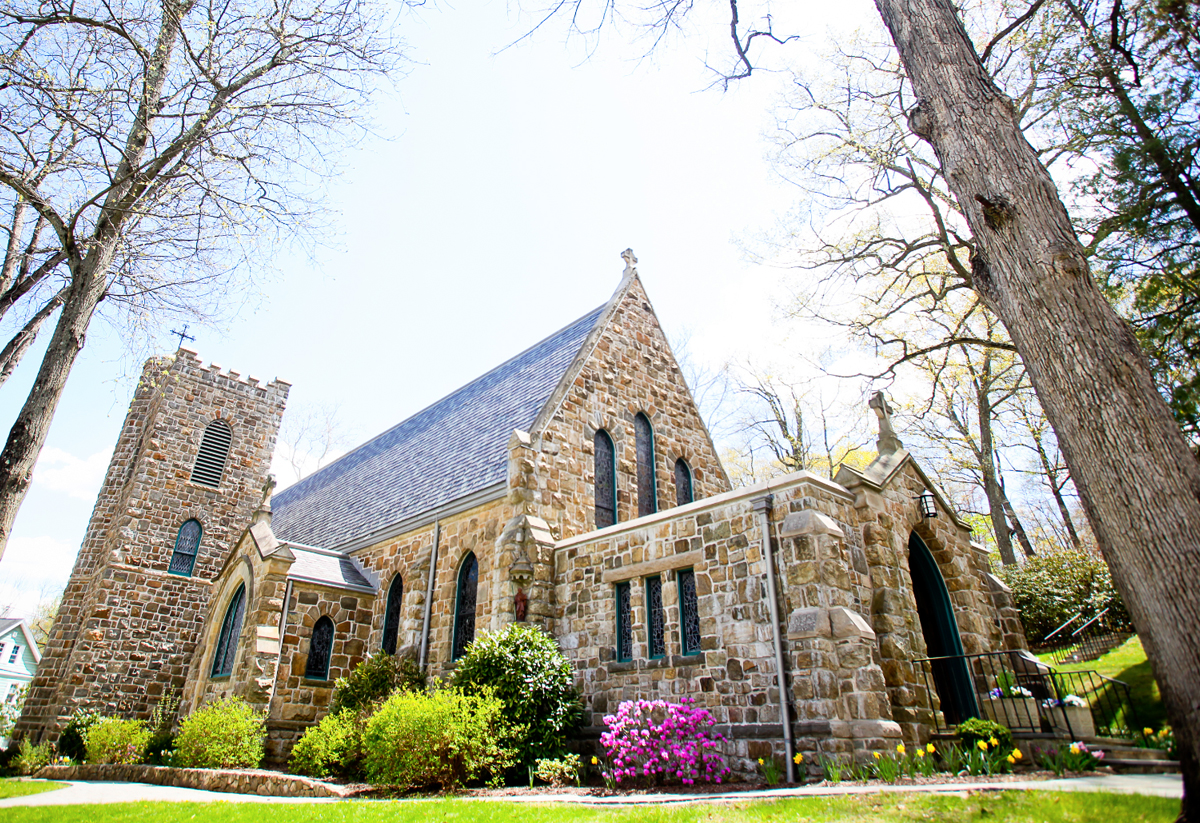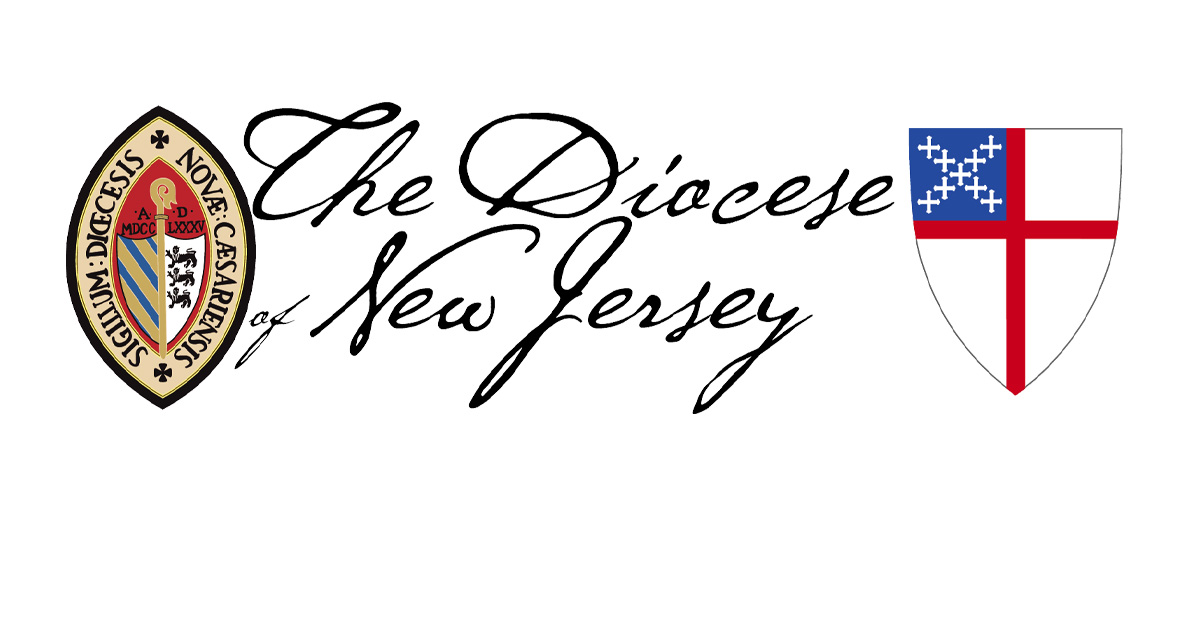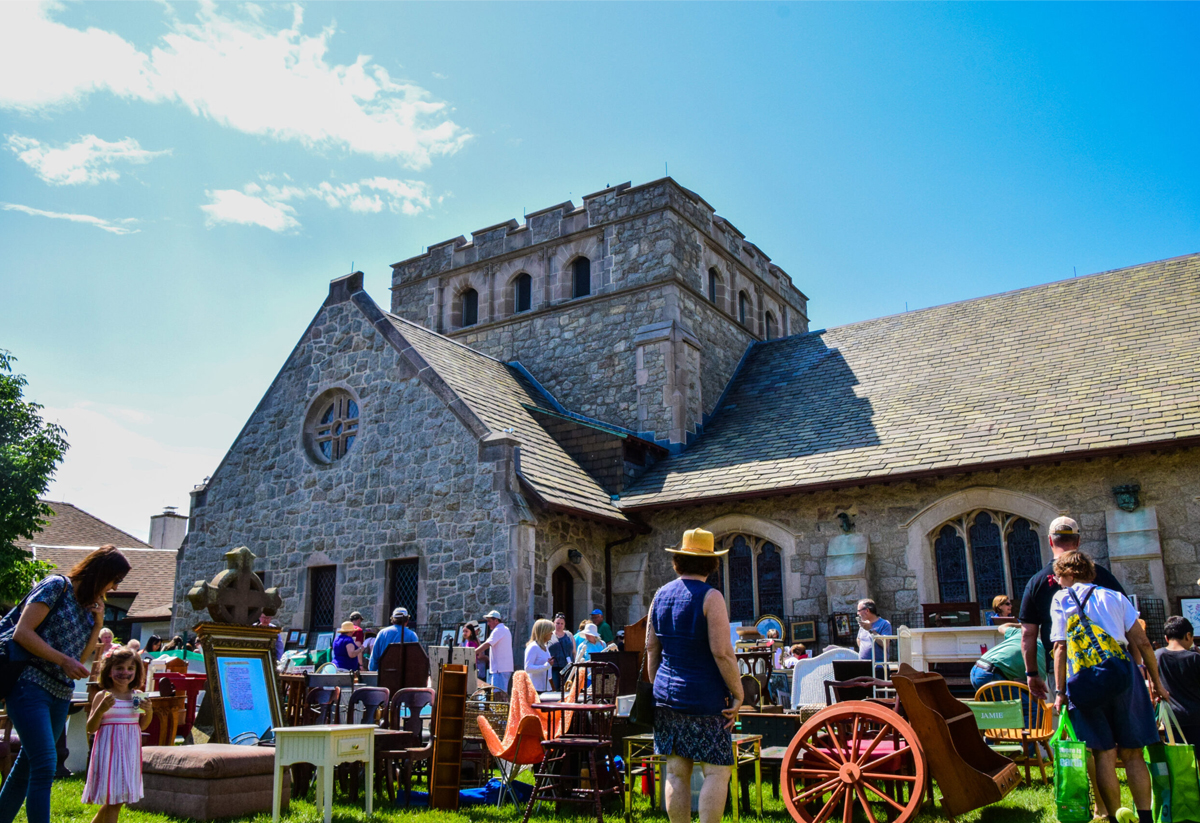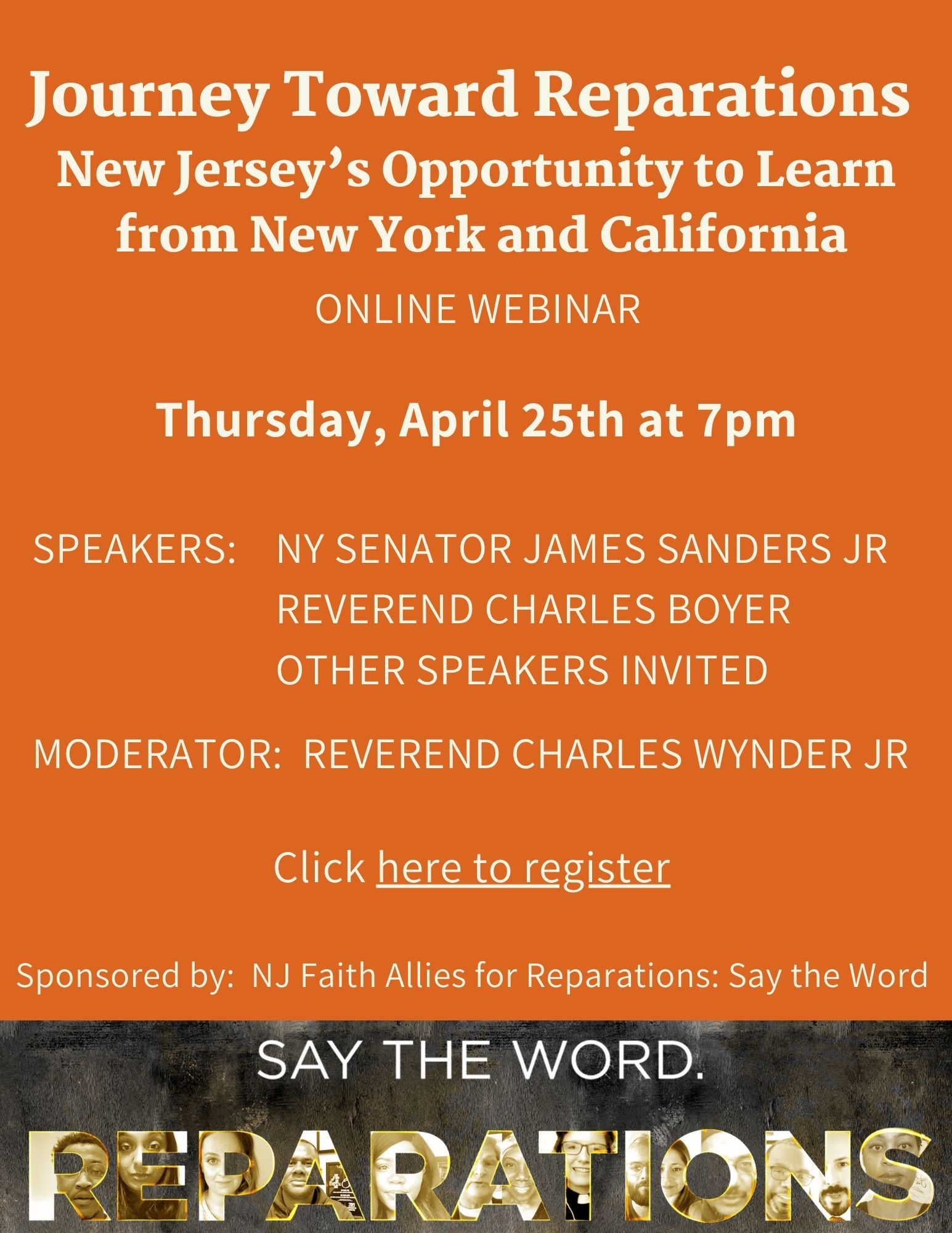
Dear People and Friends of the Diocese of New Jersey,
On Thursday, May 4, Bishop-elect Sally French and I had the distinct honor of joining our diocesan Fresh Start group to recognize the graduation of clergy who have completed the two-year program: The Very Reverend Lisa Hoffman, Rector of Christ Church, Toms River, The Reverend Michael Panzarella, Priest-in-Charge of Grace-St. Paul’s, Mercerville, and The Reverend Tammy Young, Rector of St. John’s, Little Silver.
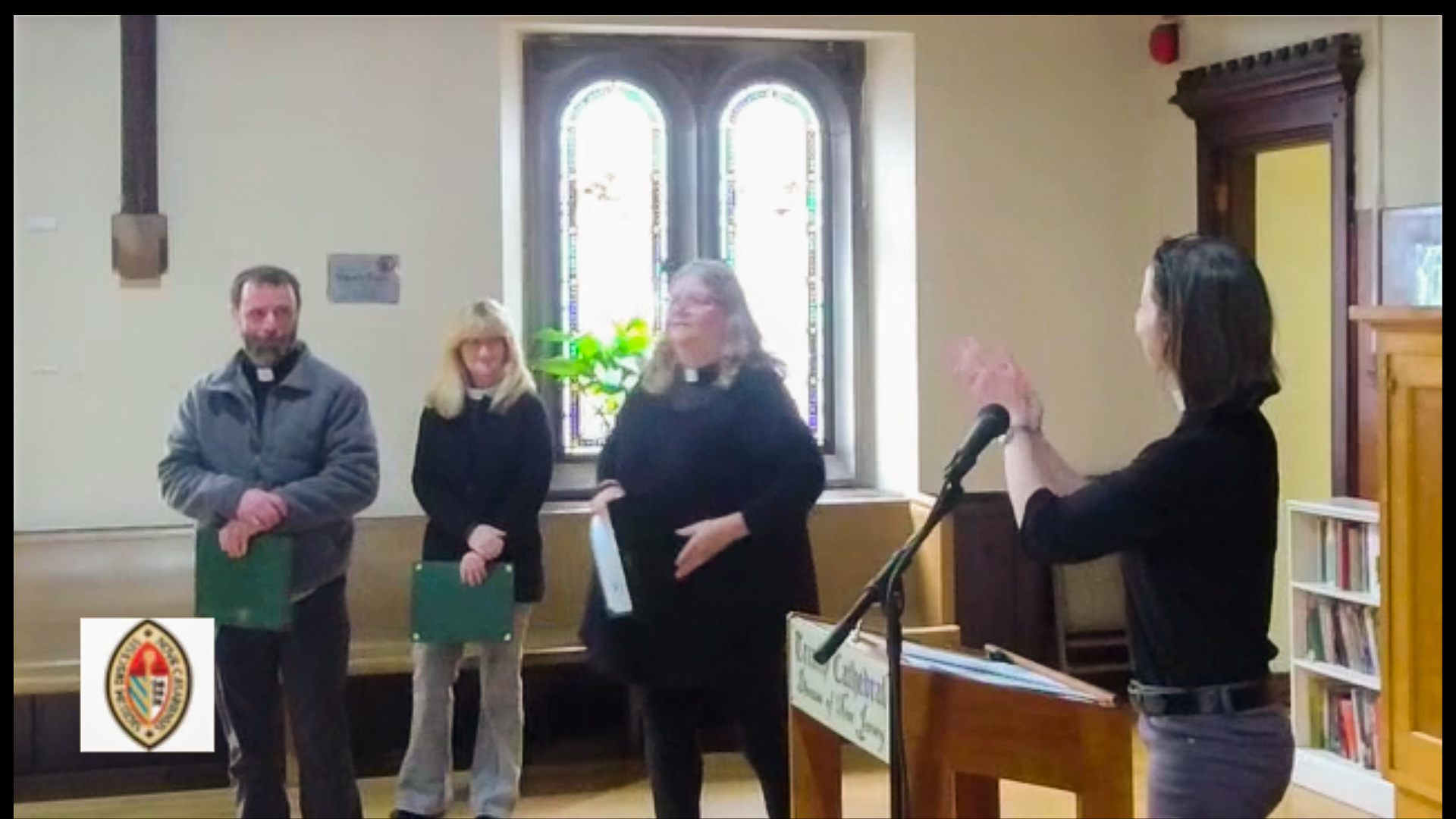
Fresh Start is for persons in “new cures,” meaning clergy beginning new positions whether as Rector, Priest-in-Charge, Curate, Associate, etc. The program is intended to provide collegiality, support and learning opportunities for participating clergy. It’s a “safe space” for clergy to share the joys and challenges of new ministry and to care for one another. I am deeply grateful to the Reverend Susanna Cates, Rector of All Saints, Scotch Plains, The Reverend Canon Joanne Izzo and the team of mentors that give of their time and talent to offer Fresh Start year after year.
Thursday’s Fresh Start program began with Morning Prayer in the Chapel of Trinity Cathedral. The group then convened in Synod Hall where The Reverend Greg Wilson, a Licensed Clinical Social Worker and Priest-in-Charge of Trinity Church, Swedesboro, The Reverend Ali Van Kuiken, Chaplain at Trenton Psychiatric Hospital and Associate Priest at St. Luke’s, Ewing, and The Reverend Alan Leonard, Rector of Advent Church, Cape May and a Chaplain of the Coast Guard Auxiliary, all members of our diocesan M*a*S*H (Mental and Spiritual Health Committee), offered a presentation on basic mental health issues and concerns which clergy may encounter in their pastoral ministries. This included understanding some of the basics of mental health disorders that afflict many in our culture today. There was a robust conversation about roles and when to make a referral in a pastoral setting. The session also addressed substance-use disorders, focusing particularly on alcohol but also addressing cannabis, benzodiazepines, and opioids. There was discussion about how we as human beings are “wired to connect and that appropriate connection is one ministry that we have available to us as the church.” It was observed that this connection is similar to the ministry that Jesus showed us. Finally, there was discussion of the importance of self-care for clergy. It was observed that clergy are not effective if they are not caring for themselves. Self-care, it was made clear, is part of the job description.[1]
Thursday’s presentation at Fresh Start on mental health concerns was timely. May is Mental Health Awareness month. Established by Mental Health America, Mental Health Awareness Month has been observed in the United States since 1949.[2] Yesterday’s Fresh Start participants were provided with an information sheet that included some statistics about mental health in the United States. Among the facts provided:
Approximately 1 in 5 adults in the United States—43.8 million people, or 18.5 percent of the adult population—experiences mental illness in a given year.
Approximately 1 in 20 adults in the U.S.—14.2 million people, or 5.6 percent of the population—experiences a serious mental illness in a given year that substantially interferes with or limits one or more major life activities.
Only 41% of adults in the United States with a mental health condition received mental health services in the past year. Among adults with a serious mental illness, 62.9% received mental health services in the past year.
1 in 6 U.S. youth aged 6-17 experience a mental health disorder each year.
Suicide is the 2nd leading cause of death among people aged 10-14[3]
This past Tuesday, the Surgeon General of the United States, Vice-Admiral Dr. Vivek H. Murthy, issued and official advisory drawing attention to our national Epidemic of Loneliness and Isolation. In an Op-Ed article that appeared on Sunday April 30th in The New York Times in advance of his statement’s public release, the Surgeon General wrote:
Loneliness is more than just a bad feeling. When people are socially disconnected, their risk of anxiety and depression increases. So does their risk of heart disease (29 percent), dementia (50 percent), and stroke (32 percent). The increased risk of premature death associated with social disconnection is comparable to smoking daily — and may be even greater than the risk associated with obesity. Loneliness and isolation hurt whole communities.[4]
Sometimes it’s difficult for our hearts not to be troubled. We have experienced a worldwide pandemic that killed millions. It seems that every day we are confronted with news of another mass shooting in our nation. Within our diocese and the community we serve, people have to face the life-threatening challenges of homelessness, poverty and domestic violence every day. Beyond all this are the day-to-day challenges of daily living which, as the Surgeon General observes, is often marked by deep, profound, loneliness.
Yet despite the prevalence of mental illness and mental health challenges among us, there is still widespread denial and avoidance as many still stigmatize mental health issues and shy away from naming them or seeking help, leaving those who suffer in a dark corner of life and society. Mental Health Awareness month exists precisely to counter this by encouraging us all to be more knowledgeable and open about mental health in our homes, churches and communities.
I encourage our congregations to be proactive in addressing the issues of mental health concerns. Check out the toolkit provided by Mental Health America which you can access here. If your congregation includes mental health professionals, ask them to offer forums on mental health. Certainly, spiritual wellness and community, antidotes to the epidemic of loneliness and isolation in our nation, are in our “wheelhouse” as church. As Fr. Greg Wilson observed in his presentation to the Fresh Start group this past Thursday, “As the church, we know how to help people connect in community.”
Please remember that this coming Sunday, May 7 is Episcopal Community Services Diocese of New Jersey Sunday (ECS-NJ) Sunday. E.C.S.- N.J. Director, Deacon Trisha Thorme and her team have prepared a wide-range of resources to help our congregations observe this. It should be noted that the ministries supported by ECS-NJ are among the means we have to help many persons in our communities who suffer from mental illness. They are also a strong way to draw people out of loneliness and isolation and into healthy community.
God bless you and keep you and give you grace to make meaningful connections with those in your communities that are lost and lonely.
Faithfully in Christ, The Right Reverend William H. Stokes
The Right Reverend William H. Stokes
Bishop of New Jersey
______________________________
Notes
[1] I am grateful to the Reverend Greg Wilson who sent me a helpful summary of the day’s presentations and discussions in an email of May 4, 2023 following the event.
[2] This is to be distinguished from the World Health Organization’s World Mental Health Awareness Day on October 10)—See World Mental Health Day (who.int)
[3] Data taken from the National Alliance on Mental Health—see Mental Health By the Numbers | NAMI: National Alliance on Mental Illness
[4] Murthy, M.D., Vivek H. “Surgeon General: We Have Become a Lonely Nation. It’s Time to Fix That.” The New York Times On-Line, April 30, 2023 found at Opinion | Loneliness Is an Epidemic in America, Writes the Surgeon General – The New York Times (nytimes.com)

